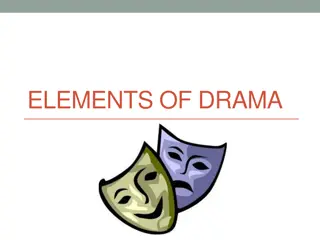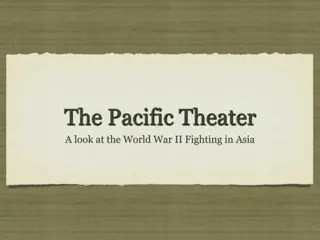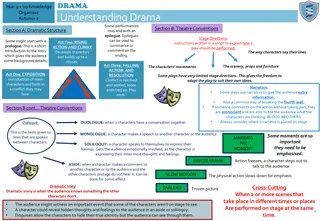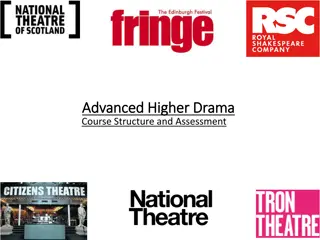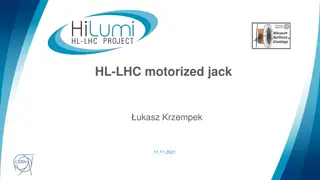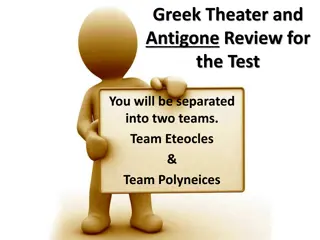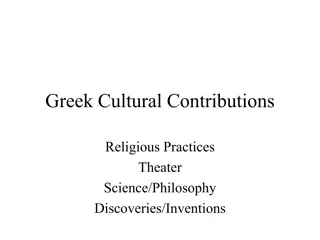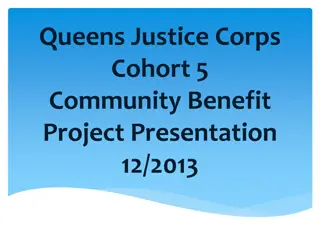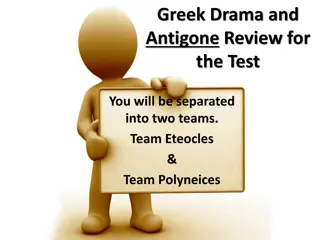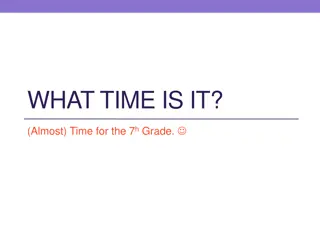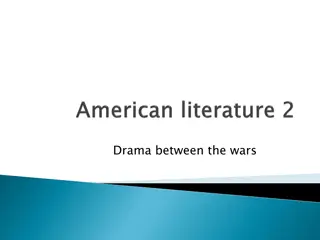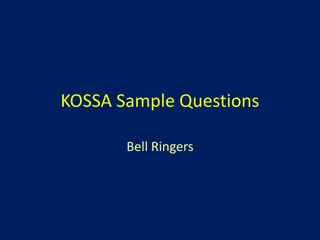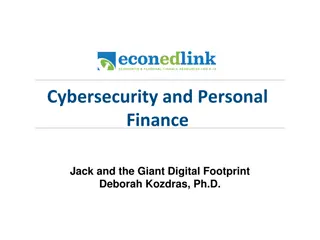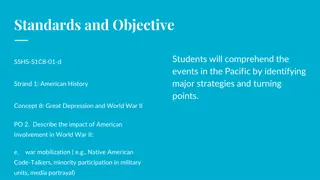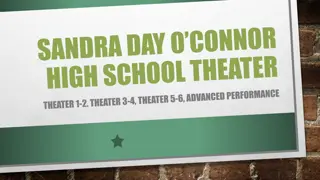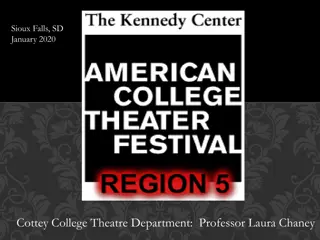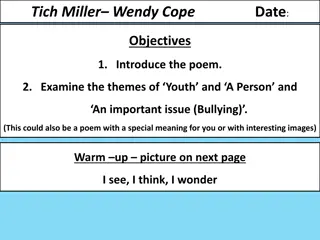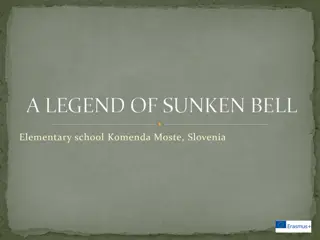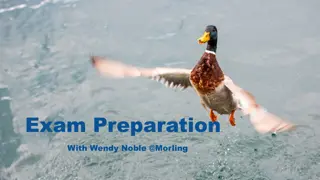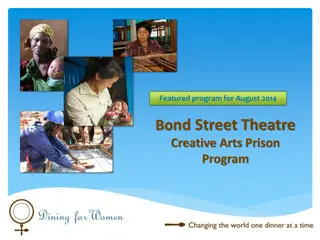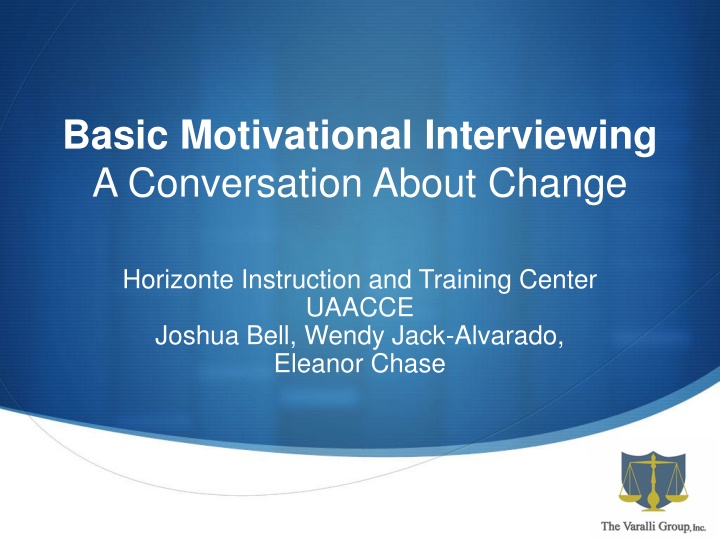
Motivational Interviewing for Change at Horizonte Instruction and Training Center
"Explore how Motivational Interviewing is driving positive change at Horizonte Instruction and Training Center, featuring insights from key personnel Joshua Bell, Wendy Jack-Alvarado, and Eleanor Chase. Learn about student data analysis, impact on certified nursing assistant program, and more."
Uploaded on | 0 Views
Download Presentation

Please find below an Image/Link to download the presentation.
The content on the website is provided AS IS for your information and personal use only. It may not be sold, licensed, or shared on other websites without obtaining consent from the author. If you encounter any issues during the download, it is possible that the publisher has removed the file from their server.
You are allowed to download the files provided on this website for personal or commercial use, subject to the condition that they are used lawfully. All files are the property of their respective owners.
The content on the website is provided AS IS for your information and personal use only. It may not be sold, licensed, or shared on other websites without obtaining consent from the author.
E N D
Presentation Transcript
Basic Motivational Interviewing A Conversation About Change Horizonte Instruction and Training Center UAACCE Joshua Bell, Wendy Jack-Alvarado, Eleanor Chase
Horizonte Instruction and Training Center UAACCE 2019
Joshua Bell Principal, Horizonte Instruction and Training Center Director of SLCSD Adult Education Court Registered Mediator USA Certified Boxing Coach Trained in Motivational Interviewing through the Motivational Interviewing Network of Trainers (MINT)
Wendy Jack-Alvarado Director, Salt lake City School District Youth in Care Program (YIC) Licensed School Social Worker Motivational Interviewing On-Site Team Member Court Registered Mediator
Eleanor Chase School Counselor Motivational Interviewing On-Site Team Member SAFE UT Coordinator LGBTQIA+ Staff Coordinator College/ Career Advisor
Introductions Elbow Partner Name Current Role/Title What is most challenging about your work? What do you want to take away from this presentation?
Before we start: Etiquette and Housekeeping Items Agenda- Who we are and what we do Why Is MI a good fit? What is MI? How it works Next steps Practitioner Perspective (Eleanor and Wendy) Questions
Student Data Analysis- Where we Were 25% of our students were reading above a 9th grade level However, 75% of our students were reading below a 9th grade level. Student SRI Data at the end of last school year
Student Impact Certified Nursing Assistant- Horizonte Criteria for Referrals: 1) Good Academic Standing in all classes 2) On pace to graduate by the end of the year 3) Good Attendance 4) No behavior issues 30 Students qualified Certified Nursing Assistant- Salt Lake Community College Criteria for Admission: 1) 6th Grade TABE Reading score 2) 5th Grade TABE Math score Only 9 of the initial 30 qualified In Summary, Certified Nursing Assistant is among the most accessible vocational training programs offered through SLCC, yet, only 30% of our graduating seniors qualified for admissions because they could not demonstrate an ability to read at a 6th grade level or perform math functions at a 5th grade level.
Purpose To teach students the basic and executive functioning skills they need to access opportunities and self-advocate for success after graduation.
Have you had training in Motivational Interviewing? -Elbow Partner- What is Motivational Interviewing? Share what you know about MI in two minutes Then, take turns sharing why you want to know more about it.
Motivational Interviewing (MI) MI is a collaborative communication style for strengthening a person s own motivation and commitment to change.
Ways of being with people Directing Guiding Following
Four Aspects of the Spirit Partnership - collaboration Acceptance - including accurate empathy, autonomy support, absolute worth and affirmation Compassion - promoting the welfare of the client Evocation - Evoking that which is already there. not Installing what is missing.
Four MI Processes Engaging: The process of establishing a helpful connection and working relationship Focusing: The process by which you develop and maintain a specific direction in the conversation about change Evoking: The process of calling forth from the client, information about change Planning: The process encompasses developing commitment to change & formulating a concrete plan of action
Sympathy vs Empathy -Know the difference- Empathy refers to seeking to understand another person s emotional state and reflecting that feeling Sympathy does not require this, but is a concern or feeling sorry for the troubles of another person
Evocation People are usually better persuaded by the reasons which they have themselves discovered than by those which have come into the minds of others. - Blaise Pascal
Ambivalence People often get stuck, not because they fail to appreciate the down side of their situation, but because they feel at least two waysabout it. Miller and Rollnick
Ambivalence The most common place to get stuck Arguments both for and against already exist within the person If you re arguing for change and the person is arguing against it it s exactly backward! (Reactance theory)
Summarizing Ambivalence and the MI Spirit MI style is guiding/coaching Ambivalence is normal and people can remain stuck (us too!) When we use a directing style in the face of ambivalence we bring out the person s opposite arguments, thus reinforcing the status quo People are more likely to be persuaded by what they hear themselves say
Basic practice of MI Don t try to persuade or fix anything. Don t offer advice. Instead ask these four questions one at a time, and listen carefully to what the person says: Why would you want to make this change? 1. If you did decide to make this change, how might you go about it in order to succeed? 2. What are the three best reasons for you to do it? 3. How important would you say it is for you to make this change, on a scale from 0 to 10, where 0 is not at all important, and 10 is extremely important? [Follow-up question: And why are you at _____ rather than a lower number of 0?] 4. After you have listened carefully to the answers to these questions, give back a short summary of what you heard, of the person s motivations for change. Then ask one more question: So what do you think you ll do? and listen with interest to the answer. 1.
5 Key Communication Skills/OARS Open questions Affirmations Reflective listening Summarizing In addition Providing information and advice with permission
OARS: Reflective Listening Learnable skill Fundamental in all four processes Always a statement (voice inflection down at end of the sentence) Makes a guess at what the person means Can be simple or complex (varies in depth) Can reflect content or feelings
Simple Reflection Client: I don t want to quit drinking. PO: You re not going to stop drinking. Client: I don t have anything to say. PO: You re not going to answer these questions. KEY: Little or no meaning is being added to what the client has said.
Complex Reflection Client: I don t want to quit drinking. PO: There is something about drinking that you just don t want to give up. Client: I don t have anything to say. PO: Even if you did have something to say, you re wondering how it might impact your supervision or legal case.
Why are Reflections so important? More relevant, accurate information is obtained Person feels heard, cared about The agenda focuses on the person being supervised and not just yours or your supervisor s.
Sohow can MI help you? MI can enhance your communication skills and reduce job related stress and burn-out . You can gather more accurate (and MORE!) information. You can engage students as active participants in their education process, their plan, thus making your work less stressful. They should be doing more than you?
How could MI fit into your daily work? Information gathering - more accurate information improves efficacy of case plans Reducing discord in the relationship with the student Tipping student ambivalence towards active change Providing a structure for behavior change Improving school community, culture and morale
We too have a choice Our approach with the student can either: increase relational discord and decrease behavior change OR support the collaborative working alliance and guide behavior change, thus improving the students condition while also serving to protect the interests of the school
If you decide that MI might benefit your work? How will you start to build your skills? Building Motivation



